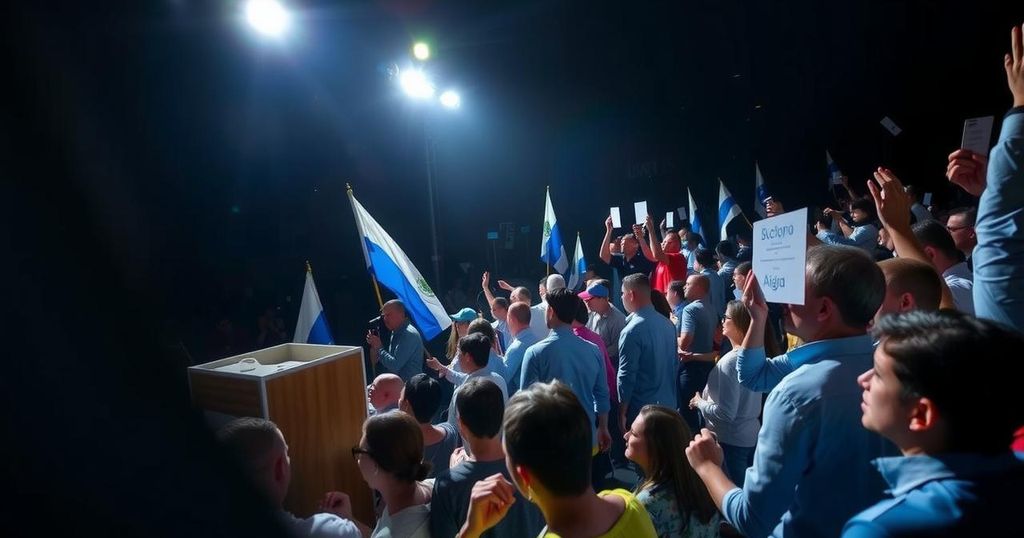Uruguay’s Upcoming Presidential Runoff: A Competitive Landscape Ahead

Uruguay’s presidential runoff on Sunday pits Álvaro Delgado of the National Party against Yamandú Orsi of the Broad Front, showcasing a major shift in voter engagement following an inconclusive first round. With both candidates addressing rising crime and economic policies, the election reflects a stable democratic process amidst notable voter indecision and lack of extreme populist sentiments.
In Montevideo, Uruguay, unprecedented voter interest characterizes the upcoming presidential runoff set for Sunday. The contest features Álvaro Delgado, representing the current conservative governing party, against Yamandú Orsi, from the left-leaning Broad Front coalition. The previous election did not yield a majority for either candidate, resulting in a hard-fought race marked by a close polling situation. While Orsi secured 44% of the first round vote, Delgado managed 27%, aided by the support of other conservative parties that collectively captured 20%.
The political atmosphere reflects an unusual lack of extreme populism, focusing instead on issues such as taxation and social spending. Analysts note that the absence of a heated anti-establishment sentiment—as evident in various global elections—contributes to notable voter indecision. Moreover, both candidates seek to address rising concerns regarding violent crime, presenting differing strategies rooted in their political legacies. Delgado aims to consolidate the favorable policies of outgoing President Luis Lacalle Pou, while Orsi aspires to establish a progressive approach aligned with his working-class background.
Delegates from a politically divided Congress further complicate this election, with both Delgado, 55, and Orsi, 57, presenting contrasting visions for Uruguay’s future. Delgado’s platform promotes continuity in governance and pro-business strategies, including the pursuit of international trade opportunities. Conversely, Orsi draws inspiration from former President José Mujica, advocating for a revitalized left that emphasizes investment incentives within critical sectors such as agriculture.
As Uruguayan voters prepare to cast their ballots once more, the outcome promises to reflect the nation’s democratic strength amid evolving political dynamics.
This unprecedented election showcases both candidates vying to reflect the desires of an informed electorate, albeit marked by a palpable sense of apathy and caution about the future.
The article discusses the framework of the upcoming presidential runoff in Uruguay, where Álvaro Delgado of the National Party and Yamandú Orsi of the Broad Front are in a tightly contested race. Following a prior election that split votes among various parties, both candidates must navigate a politically charged environment compounded by concerns over crime and economic policy. The context also underscores the current political landscape in Uruguay, which contrasts with global trends of populism, revealing a complex yet stable democratic process historically seen in the nation.
In conclusion, the Uruguayan presidential runoff reflects a notable shift to a highly competitive electoral climate, driven by two candidates representing distinct political ideologies. Álvaro Delgado promises continuity, while Yamandú Orsi aims to reshape the future of the left in Uruguay. As the nation demonstrates its democratic vitality, the election underscores a broader commitment to resolving contemporary issues despite a backdrop of public skepticism and voter apathy.
Original Source: www.clickondetroit.com







